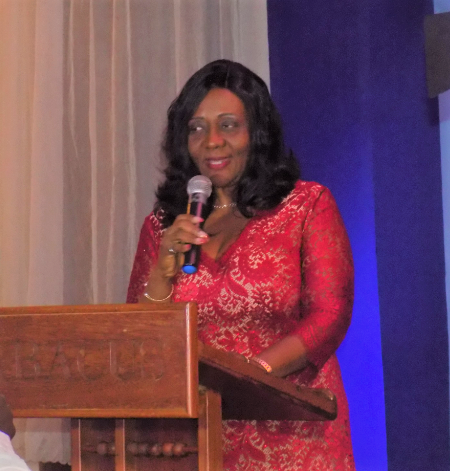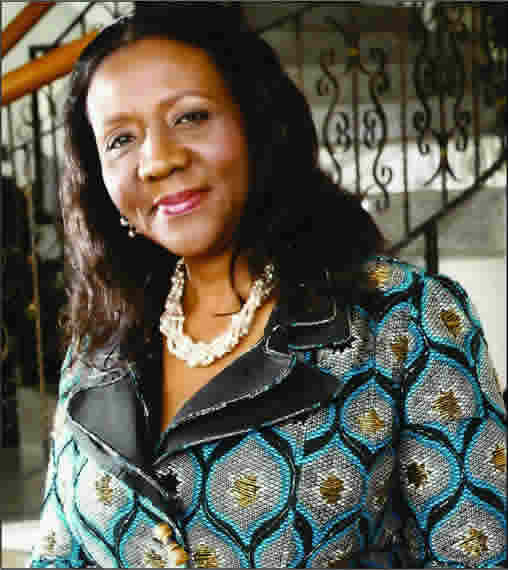Fishing trawler owner, Margaret Orakwusi, wants more action than endless talks to tackle the problem of marine environment pollution and illegal, unregulated, unreported(IUU) fishing, which most times are hardly traced to culprits, yet denies the locals of their means of livelihood, fishing.
She told OnepageAfrica in an interview that, hopefully, since the issue had become more pronounced, relevant agencies would pay more dedicated attention, though those of them in the fishing business fish many nautical miles away from the shore, they would always do water analysis and keep off areas of
pollution.
pollution.
Orakwusi, a former President of the Nigerian Trawler Owners Association (NITOA) and the Chairman, Shipowners Forum, who spoke on the background of the recent dead fishes washed ashore the Niger Delta coastline, identified overlapping functions among regulatory agencies of government in the industry as a challenge to addressing the problem.
“You see, that is the problem. If you are feeling that way, you can image how we feel, as operators. They keep having overlapping functions by the different agencies; you have the Ministry of Agriculture, you have the Department of Fisheries, you have Oceanography, you have NIMASA, you have the Navy. So, the issue is “who should be in the forefront, who should coordinate the monitoring from the agencies?”
However, she thinks that: “They need to work together to drive efficiency in stopping all these. They all
travel out. They attend meetings abroad. We are signatories to a lot of conventions. What is happening? How are those people monitoring effectively their domain? These are issues that we must bring to the table.”
travel out. They attend meetings abroad. We are signatories to a lot of conventions. What is happening? How are those people monitoring effectively their domain? These are issues that we must bring to the table.”
Purposeful action must be taken now to monitor and end pollution to the nation’s waters, considering the
dangers to public health among locals within the coastline. “To start with, to fish in polluted environment is a huge issue to our health. To also have a shoreline that is highly polluted, it has consequences on our health. The issue of resource, I mean, that should be secondary.
dangers to public health among locals within the coastline. “To start with, to fish in polluted environment is a huge issue to our health. To also have a shoreline that is highly polluted, it has consequences on our health. The issue of resource, I mean, that should be secondary.
“Shoreline pollution, It shouldn’t be business as usual. People should just do something. We need to
enlighten our people, educate even the young ones, about what the ocean is all
about,” she said.
enlighten our people, educate even the young ones, about what the ocean is all
about,” she said.
Strengthening maritime security to stop poachers
Now, Orakwusi says security surveillance needs to be deepen and readiness to stop the poachers, who come to deplete Africa’s fish stock and doing so in very irresponsible manner.
She said: “It is very important. We have always advocated for them to protect us, protect our natural
resources from all the criminality going on out there. Who is monitoring? Africa loses in billions of dollars annually to the activities of poachers. We all know this. It is not only sea piracy that goes on there. We have the activities of the poachers, we have people stealing the crude oil. We have so many irresponsible criminal activities going on out there. We need effective monitoring.
resources from all the criminality going on out there. Who is monitoring? Africa loses in billions of dollars annually to the activities of poachers. We all know this. It is not only sea piracy that goes on there. We have the activities of the poachers, we have people stealing the crude oil. We have so many irresponsible criminal activities going on out there. We need effective monitoring.
“Always remember that you are fighting this war between powerful people. It is like mafia war. A poor man
cannot use a facility, platform, big ship that runs into millions of dollars to come and steal in their environment. So, you are dealing with mafia.
cannot use a facility, platform, big ship that runs into millions of dollars to come and steal in their environment. So, you are dealing with mafia.
“Any time I speak on this, to call on international community “who is providing market for stolen fish from Nigeria, or from Africa”? because, it is easy to trace. These are issues that maybe after COVID-19, African governments need to be in the forefront and tackle it, because we know where these vessels are coming from. They come from Asian countries, they come from Europe. They have available market for their
stolen products.
stolen products.
“The issue of dumping toxic waste, they cannot do that back in their country because, they have coast guard. They have all sorts of guards monitoring effectively what goes on in the domain. We don’t have all that. And that is why they see our ground as being available for all sorts of things to be dumped.”
Bad as the poaching situating is on Nigeria’s waters, Orakwusi said the situation in Tanzania was worse, where according to a woman who spoke during one of her talks, said illegal fishers used dynamite and got away with the act.
“So, that is why there shouldn’t be a second stage or type of slavery in Africa,” she said.


































































